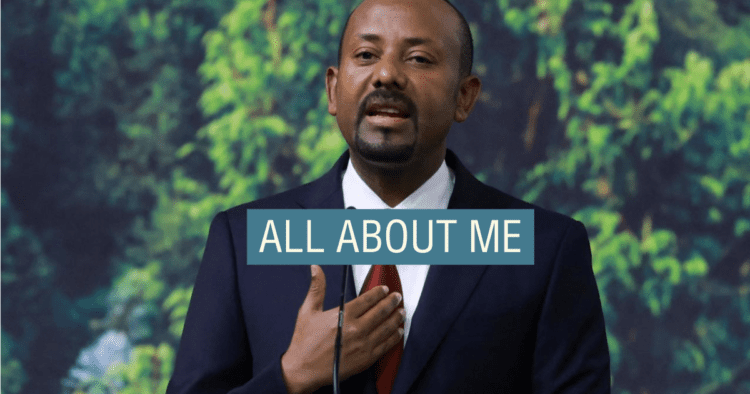💡 Why is Abiy such a compelling figure to write about? What sort of access were you able to get? Abiy is without doubt one of the most enigmatic, confounding and contradictory figures in contemporary African — indeed, global — politics. In fact it is hard to overstate just how slippery and elusive he is, and how much he defies easy categorization: he is, at once, part preacher, part spy; part reactionary nationalist, part future-facing moderniser. It is for this reason that one of the core arguments of my book is that he is, in effect, the iconic African leader of the so-called ‘multipolar’ age — an esoteric bricolage of influences styles: national and cosmopolitan; old and new; African, Western and Middle Eastern. The problem with such a figure, though, is that access to him as a foreign journalist is close to impossible. So I’ve had to work around that, interviewing as many people as possible who have known and worked with him, in order to slowly, over the course of my six years in Ethiopia, build up a portrait of the man.
💡 How has Ethiopia changed since Abiy came to power? By the time I left Ethiopia in mid-2022 it was almost unrecognizable from the country in which I arrived in 2016. Most importantly, it has become far a more dangerous, more violent place than it has been in decades. The Ethiopian state — which was widely seen as among the very strongest on the continent — is a shadow of its former self.
💡What was the impact of Abiy winning the Nobel Peace Prize in 2019 for bringing peace with neighboring Eritrea? I think the prize was a reckless intervention into Ethiopia’s domestic politics, which emboldened Abiy to embark on a more confrontational path with his political opponents and ultimately served to push him further down the path to war.
💡 How has Ethiopia’s relationship with countries around it changed in recent years? Drastically. Under Abiy’s most recent predecessor, Ethiopia was generally seen as a status quo actor and — with the crucial exception of Eritrea (plus, to a lesser extent, the federal government of Somalia) — enjoyed warm relations with most of its neighbors. Now, it is seen by all of them as a dangerous revisionist power seeking to redraw its borders. And on a personal level, Abiy is mistrusted by all his fellow leaders, from Eritrea to Somalia to Sudan, South Sudan, Kenya and Djibouti. It will take many years to rebuild that trust.
💡 What will the next decade look like for Ethiopia’s economy? Though this is sometimes overstated, Abiy is — instinctively — an economic liberal so I would expect to see a further opening up of the economy to foreign competition, for example in the financial sector (long off-limits to outsiders). We might also see some more radical moves towards privatizing land (which is formally still owned by the state). The trouble, though, is that the economy is today bedeviled by instability and and corruption.
💡 You describe the Abiy era as the “most tumultuous years in recent Ethiopian history”. Why do you say that is? The Tigray war, which formally ended in late 2022, was among the deadliest of the 21st century so far. So in that sense the answer is obvious. However, outsiders often forget that the turbulence both pre-dated the start of the war in 2020, and has outlasted it as well. Up to 3 million people were displaced by violence in 2018 alone — more than any other country on earth. And it wasn’t just mass conflict. The story of the last six years is one of countless political assassinations, attempted coups and mutinies (some alleged, some real), abductions, pogroms, intensifying repression — you name it. But also, at the same time, a parade of surprise peace deals, a breathless period in 2018 known as “Abiymania”, a dramatically gentrified Addis Ababa — all of that too. Abiy thrives on unpredictability and that has been the defining characteristic of his time in power.
💡How important is religion in the country’s political landscape? The subtitle of the book is testament to the importance I attach to religion to explain Abiy’s Ethiopia. Abiy is a Pentecostal Christian — in a traditionally Orthodox country — and that is really important to understanding him and his political project. I argue that the prime minister can be understood, in some ways, as a religious figure – in particular in his rhetoric, and also epistemologically, in terms of the way he views the world and politics. Most crucially, he sees himself within a prophetic tradition – he believes he was sent by God to rule, to deliver Ethiopia into prosperity, to save the country from ‘Godless’ Marxism, and to steer it from disintegration.
Source link : https://www.semafor.com/article/07/15/2024/ethiopia-and-abiy-have-changed-each-other
Author :
Publish date : 2024-07-15 12:16:00
Copyright for syndicated content belongs to the linked Source.





